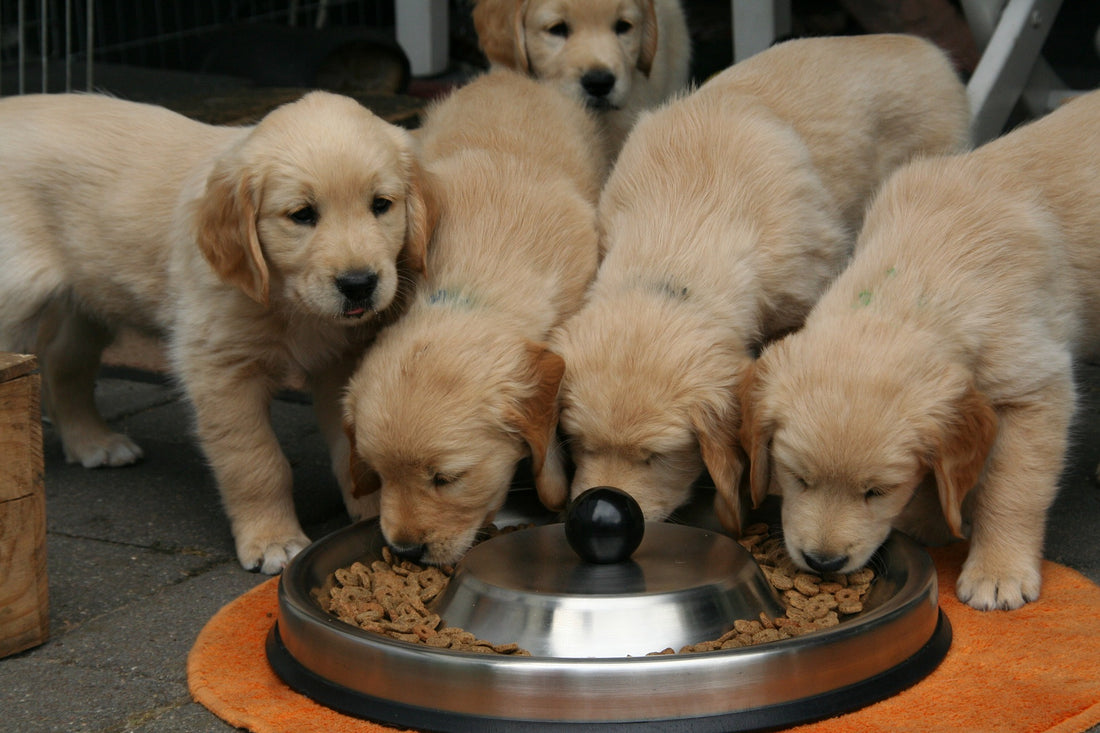
Dog Has Cancer! What Types of Diet Should I Feed?
Share

As a dog owner, one of the most devastating things that you can ever hear is the news that your dog has cancer. How did he get cancer? Why? With dog cancer leading as the cause of death in dogs, you would be justified to panic and be terrified if you discovered that your dog has cancer. It is, however, imperative not to lose hope amid the fear and terror because this is the time that your pooch needs you to be strong for him. Your dog needs you to step up to the challenge and help him face cancer head-on. Dog cancer, just like human cancer, can be managed with a proper diet and prescribed medication. It is advisable for dog owners to familiarize themselves with the cancer symptoms so that they can identify the disease early if it occurs. In this article, we are going to look at the diets that you should feed a dog with cancer to help him manage the disease.
Vitamin D
According to a recent study, lack of vitamin D in a dog puts them at risk of developing cancer. Vitamin D plays a crucial role in preventing and managing dog cancer. Unlike humans who get most vitamin D3 from sunlight, dogs get little vitamin D3 from the sun and most of it from their diets. A diet rich in vitamin D can act like a dog cancer treatment diet. Vitamin D has experimentally been proven to inhibit cancer cell growth hence, can be used to slow down cancer progression together with other treatments. Dog owners are, however, advised not to feed their dogs with too much vitamin D as it can have a toxic effect in the dog’s body. Vitamin D consumption boosts blood calcium levels which might cause heart and kidney problems if they get too high. The right amount of vitamin D for dogs should not exceed 10,000 IU per kilogram of food.
Fat
The most common cancer symptom in dogs is weight loss caused by a condition called cancer cachexia. Cancer cachexia causes weight loss in dogs despite them getting all the adequate nutrients. Since weight loss is mainly the loss of body fat, it is essential that a dog with cancer receives a fat-rich diet to avoid deterioration of the body. Dogs with cancer experience low appetite which means they eat less than usual. Less eating causes a change in the dog’s metabolism that reduces the amount of new fat produced by the body. Since body fat plays a significant role in maintaining the dog’s immune system, it is essential to ensure that your dog always has adequate amounts of body fat especially when he is sick. The best fats to feed your dog are omega-3 and omega-6 fatty acids. Omega-3 fatty acids come from fish oils while omega-6 fat acids come from chicken fat, pork fat, vegetable oil, corn oil, and sunflower oil.

Animal protein
Dogs are naturally carnivorous animals, so they need their fair share of animal proteins to supplement other diets like commercial dry food. Cancerous tumors feed heavily on the dog’s protein supply and may lead to muscle wasting and poor immunity if the dog does not get enough proteins. It is essential for a dog cancer patient to obtain sufficient amounts of animal protein to make sure that there is enough protein to feed the dog and the tumor. In case you are wondering why we cannot just starve the tumor, well, it is because it is impossible to starve the tumor without starving the dog. You can get high-quality animal protein from fresh meat, eggs, and cheese. You can serve them raw or cooked depending on your dog’s preferences.
Limited carbohydrates
Carbohydrates may not be essential to the survival of a dog since dogs are natural carnivores with very little need for carbs, but they have a lot of nutrients that can help in dog cancer treatment. Carbs are excellent energy sources and a dog suffering from cancer needs all the energy he can get. Some carbs contain phytonutrients which help detoxify the body and enhance the immune system. Phytonutrients also help repair DNA damage and reduce internal inflammation. Dogs’ genetic design does not allow high carb intake, so it is crucial to keep your dog’s carb intake low.
Fresh vegetables
Leafy vegetables like spinach and cruciferous veggies like cauliflower and broccoli are healthy for dogs and make an excellent dog cancer treatment diet. Vegetables have an alkalinizing effect in the body. Dogs feed mostly on meat whose proteins increase acidity in the body. Since high acid levels may cause inflammations in the liver, kidneys, and pancreas, it is essential to balance the body’s pH levels with alkaline which vegetables have in plenty. Vegetables are also rich in nutrients, antioxidants, and healthy fiber which help the dog maintain excellent bowel health. Vegetables can be serves to the dog lightly steamed or raw depending on how your dog prefers them. Pureeing them and mixing them with food can assist in acceptance by dogs that do not like eating vegetables.
Medicinal mushrooms
Medicinal mushrooms are great for dog cancer management and reduction of cancer symptom severity. Medicinal mushrooms have been used over the ages to treat cancer in Japan and China due to their ability to inhibit cancer cell growth. They also have a myriad of other health benefits like detoxifying and protecting the liver, boosting the immune system, and cardiovascular support. The most common types of medicinal mushrooms are Kawaratake mushroom, Shiitake mushroom, Maitake mushroom, and Reishi mushroom. The Reishi mushroom, also known as the mushroom of immortality is the best medicinal mushroom especially for dogs with cancer due to its many health benefits. The Reishi mushroom stands out from the other types of medicinal mushrooms because of its added health benefits. In addition to the health benefits present in different types of medicinal mushrooms, Reishi mushrooms also help relieve allergies, control blood sugar, and regulate blood pressure. Reishi mushrooms also help to slow down the aging process hence the name “the mushroom of immortality.” The mushroom of immortality is famous for promoting longevity by fighting immunosenescence which is the natural deterioration of the immune system caused by aging. It is best to serve medicinal mushrooms to your dog in powder form as a soup or tea.
We end with this in mind
Dog cancer is a horrible disease and having your pooch diagnosed with it might make you feel like your world has caved in on you. It is very reasonable to feel scared and frustrated when your dog gets diagnosed with cancer. Feeling those emotions means that you love your pooch and you would wish him to live a healthy happy life. The best thing you can do for your dog in the wake of a cancer diagnosis is to be strong for him because he is looking up to you for survival. Read the dog cancer survival guide, whip your dog some healthy diets, get him medication, and play with him. Make sure that your dog is happy until his very last day if it inevitably comes to that.
